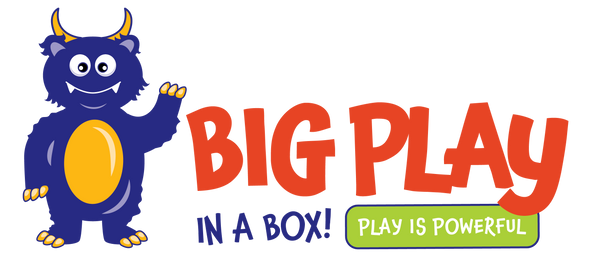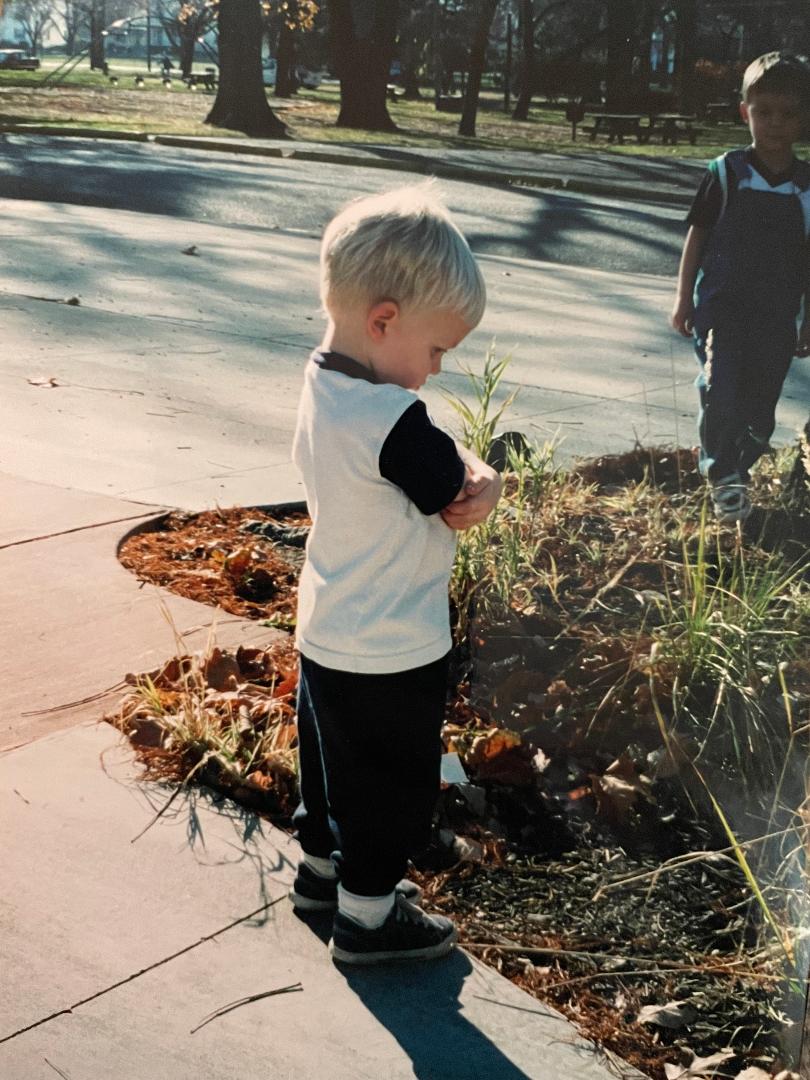
Ohh that Face! That adorable toe head was the cutest darn kid! BUT...that face often looked just like it does in this picture! I think every family is comprised of at least one that wakes up on the wrong side of the bed and milks it out often during the day. Bryce was that kid of ours.
Our boys were 21 months apart in age. Parenting them through those early years tried my patience to say the least. Our oldest son knew how to push Bryce's buttons and Bryce's tolerance was very short. The behaviors between the two of them were explosive. Bryce was capable of throwing the ultimate full-blown tantrums. It all led me to seek outside help.

I found that help through attending a free parenting class offered by a local child psychologist. It was a 6 week intensive class that honestly probably saved our family from ending up on the news. Well, maybe not that extreme, but needless to say I was desperate for some help.
I took away information from that class over 20 years ago, that I still share with parents exasperated by their children's behaviors. One of the biggest takeaways was that our children need to learn how to self-calm. What did he mean by self-calm? I used time out. I talked to them about what had gone wrong. I tried to be fair between the boys. At the time, the common philosophy was to keep your child in time out for as many minutes as they were old. 3 min for 3-year-olds, 4 for 4-year-olds. I would "release" them after the time frame, but generally not in any better mood than when it had started.
What I failed at, was actually teaching them how to calm themselves down. You see I have been around hundreds of children since those days while working as an OT. The escalating behaviors in children are real. The anxiety in children is real. And both make me really sad. These kids, like ours, do not have the innate skill of learning how to self-calm when big feelings begin to arise.
This is not scientific. I am not a numbers person who can provide percentages. I just believe that we in general lack in teaching our kids the important skill of self-calming. We bribe, beg, and give in to "keep everyone happy". Many children just don't know what to do when a problem arises. With that comes behaviors. Generally not pleasurable ones for you or your child.

It feels rotten to be angry. It feels even worse when we don't know how to make ourselves feel better. This can start in infancy and last us through adulthood. Anxiety is REAL. Anger and Frustration are Real. We need to acknowledge this even in the younger toddler years. Instead of giving in, let's give them tools.
Tools can only be taught during the "on" times. As a therapist, I have taught families that tools really can only be taught during the "ready to learn" zone. We must have our children's full attention. Bath time, snack/dinner time, bedtime are in general times that we have the best luck with communicating with our children. If we wait until the behavior is escalating or during, there will likely be no learning. They are in a flight or fight response in which soaking up any information is near impossible.
Provide them with language to use. "I feel ________, when________. Acknowledge that their feelings are real. Give them solutions as precursors to allowing overreactions to occur. This doesn't happen with one sit-down talk. It is language and skills that we need to teach continuously during the years they are in our homes. It musts change and evolve with their personalities and individual traits.

Do your children have a calm-down area? A safe zone? Are there tools such as fidgets, sensory bins, bean bag chairs, and books that can be used as means to change feelings? The same psychologist told us to ensure that behavior expectations needed to be set prior to going to places in public or visiting family or friends. Make sure when you visit Grandma and Grandpa that a designated safe/calming zone is found. Let the whole family know that if "Johnny" goes to his safe zone, he is going because he needs a break. The hardest part? You need to be willing to follow through with the expectations that you set. I remember once leaving a FULL grocery cart in a store because one of the kids could not follow the expected rules we had gone over in the car. Did that hurt? YES!!! But, that child, and the siblings, knew that I was not joking. I would follow through.
Did I become the perfect parent after those classes? Goodness no! Did I feel more equipped to help our children, YES! Do I feel like those same principles can work with kids 20 years later? I sure think so. Parenting is tough!! It doesn't always come naturally. It is okay to ask for help. Every child is different. However, I do feel we ALL can benefit from the skill of self-calming.

How did Bryce turn out? We continued to have many battles as he aged through the elementary school years. However, things began to click. His girlfriend just told me this past weekend that she has never seen Bryce mad. (Lucky Her!) He taught us many life lessons and I like to think we did to him as well. He became a college graduate with a great job. He makes us laugh and we rarely see him get upset. We think he turned out pretty well. Stick to it parents! You got this!!
For means of obtaining some calm down tools for your child's safe spot, consider going to my website where I have gift boxes and subscriptions available that have multiple items that can be used for those spaces. My website is www.bigplayinabox.com
- Miss Connie

